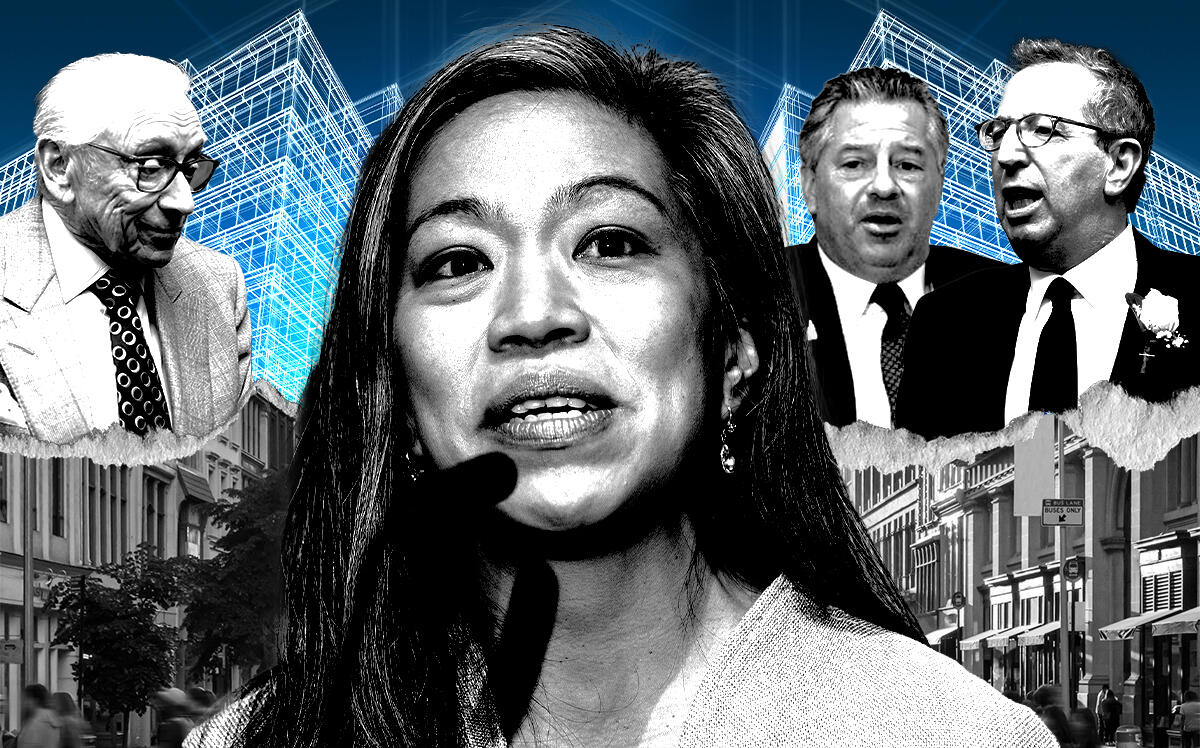 Bill Rudin: Midtown office conversions are the answer
Bill Rudin: Midtown office conversions are the answer
Trending
City official warns against “overcorrecting” on office conversions
Deputy mayor cautions redevelopment could strip neighborhoods of diversity

As developers and commercial landlords look to fast-track office-to-residential conversions, a senior City Hall official raised a caution flag Thursday.
Maria Torres-Springer, deputy mayor of economic development, said the city must ensure conversions of languishing office space does not undermine the economic diversity of certain neighborhoods, Crain’s reported.
“We have to make sure we are not overcorrecting in any of the districts that are hubs of activity but are really planning for the long term,” Torres-Springer said at a Crain’s event.
In the next few weeks, the deputy mayor said, Mayor Eric Adams would announce plans to ensure the city’s business hubs flourish as “vibrant, dynamic, 24/7 mixed-use districts.”
A city task force created last December to analyze the best uses for vacant office space is to release recommendations by year’s end. They could include zoning changes and fiscal carrots, such as tax breaks, to incentivize conversions.
Dan Garodnick, director of the Department of City Planning, told The Real Deal that the task force considered making more Midtown buildings eligible for conversions. Only those completed by 1961 can become residential without a rezoning. The city made a similar change in FiDi decades ago, triggering numerous conversions.
Speaking last month, Garodnick said the group has yet to decide what incentives might work best. Developers have suggested a tax break akin to 421-g, https://furmancenter.org/coredata/directory/entry/421-g-tax-incentive-program which from 1995 to 2006 offered an abatement for conversions Downtown.
Read more
 Bill Rudin: Midtown office conversions are the answer
Bill Rudin: Midtown office conversions are the answer
 Stars aligning for resi conversions
Stars aligning for resi conversions
 Hines reveals secret sauce behind office-to-resi conversions
Hines reveals secret sauce behind office-to-resi conversions
Comments by Rudin Management’s CEO last week signal that government may be more on board with conversions than the deputy mayor let on.
In an interview with Bloomberg, Bill Rudin said electeds would need to okay zoning changes and new tax abatements, adding that “the mayor and the governor really want to do this.”
Even without those changes, though, some well-heeled firms are charging forward with projects and funding, a sign that adaptive reuse is the way of the future.
Metro Loft Developers and office developer Silverstein Properties this year agreed to buy 55 Broad Street from Rudin to turn the 30-story office building into apartments.
This week, Silverstein CEO Marty Burger told Bloomberg the firm would raise $1.5 billion to finance office conversions and is in talks with investors to fund a “$10-billion-plus” opportunity.
Also this week, the city’s largest commercial landlord, SL Green Realty, said it would pivot from office ownership and sell buildings to pay down its debts, Crain’s reported.
The firm also said it is lobbying city and state electeds to create a viable runway for office-to-resi conversions.




